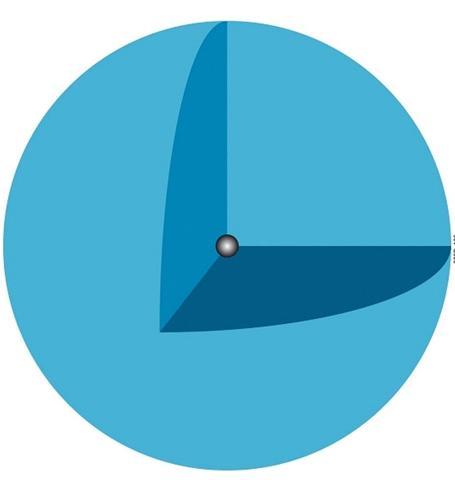Just delivery the Cisco IUWNE (Implementing Cisco Unified Wireless Networking Essentials) class last week, as there is a lesson on antenna, and it has an equation showing that:
0 dbd = 2.14 dbi
As dbd is the effect compare with dipole where dbi compare with isotopic, the first glance is that dbd should be more focus, i.e. should have a greater gain, but why is lower than dbi?
Although there are webpages explain dbi and dbd, this blog entry attempt to use a more visual way to explain it (not a rigorous physic theory).
Now just think about when you apply certain electricity energy (in terms of mW) on the antenna, which actually “convert” to electromagnetic wave and “spread” out to the space.
If we use “particles” as the energy carrier, it will be easier to visual it. Just imagine that when we use an isotopic antenna, it emits particles (with equal energy and velocity) out evenly all over the space in 360 degree in all directions.
Then over the space, if we measure in a unit volume, how many particles are passing it every unit of time, actually we are measuring the rate of energy applied on it. i.e. the Power (in either mW or dbm). Obviously the closer to the antenna, the “density” of the energy particles is higher, i.e. the stronger the signal. While when you away from the antenna, the particle density drops and thus the signal strength also drops.
The effect of antenna is just alters the “path” of the particles, it will not increase the speed nor number of particles emitted (which depends on transmission power). So that some paths will be converted to a certain direction. And thus the density of particles in certain direction will be dense than using the isotopic antenna.
The gain of the antenna thus is a measurement of how “dense” it alters the movement of particles in certain unit volume of the space. Say e.g. in a certain position, when using the isotopic antenna, there are 10 particles passing thru’ it each ms. Now by using another antenna, it increases to 20 particles each ms. Then you have a gain on that particular point.
And as the dipole already has a higher gain than isotopic antenna, so if for a new antenna, when compare the effect with isotopic antenna (dbi) vs the effect of dipole (dbd), then the former should have a greater value.
